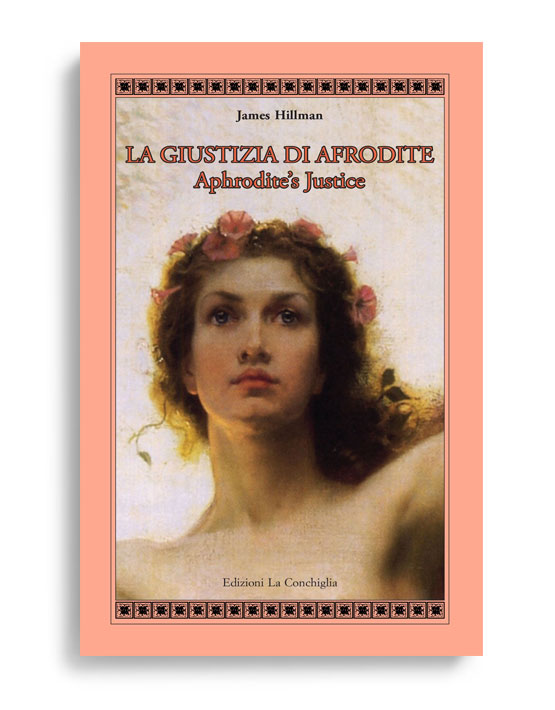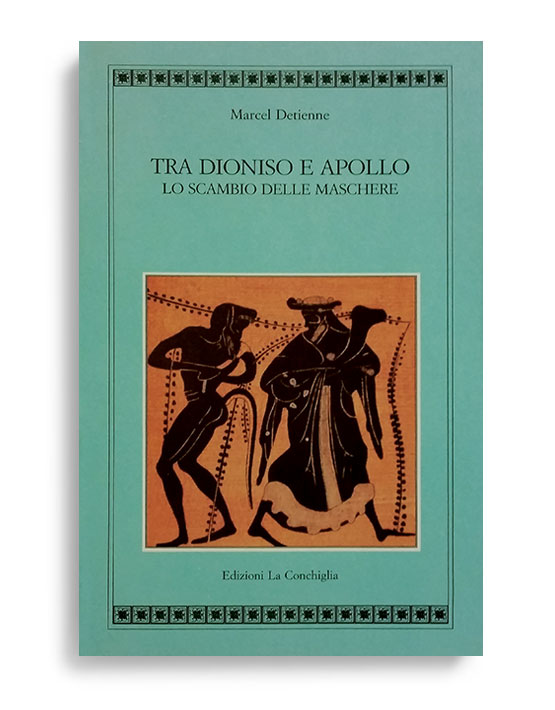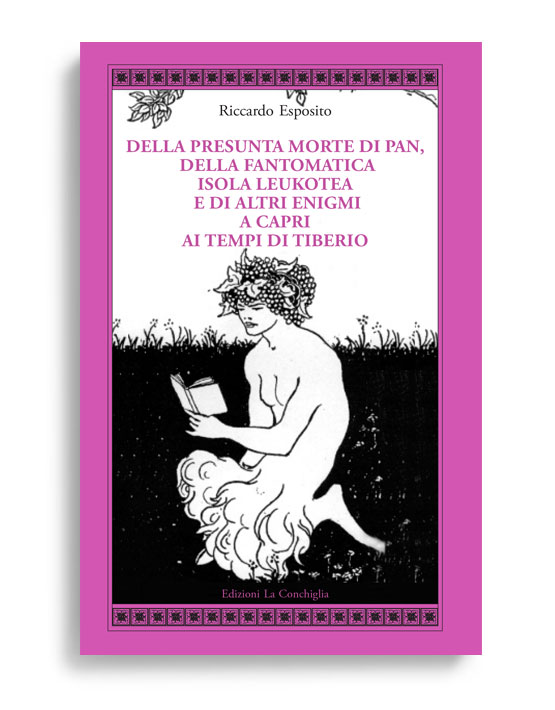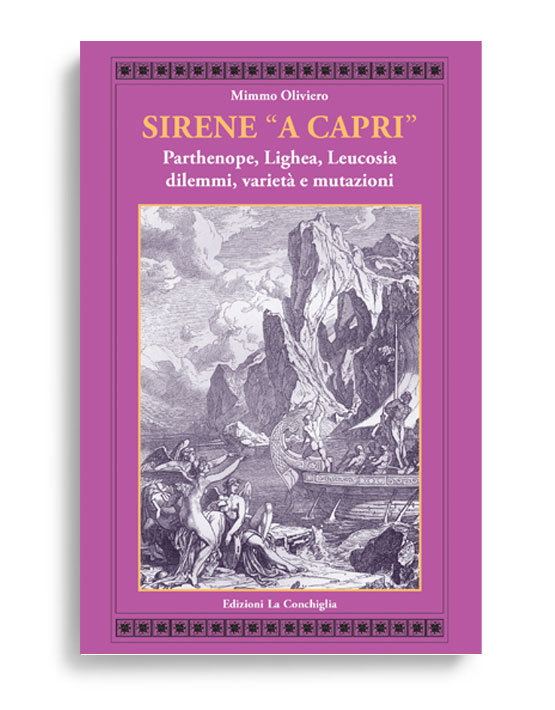
Cerca nel sito
Seguici
Le Collane
Almanacco CapreseArca NoaeAstreaAtyidaeAtysCiviltà del MediterraneoCoedizioniCorpo di BaccoCypraeaCytharaDiodoraEdizioni numerateFuori collanaHaliotisHarpaMitra ZonataNeptuneaOpere di Ettore SettanniQuaderni dell'AlmanaccoStellariaLA GIUSTIZIA DI AFRODITE / APHRODITE’S JUSTICE
di / by: James Hillman
tradotto e (annotato) da / translated (and noted) by: Silvia Ronchey
testo in italiano ed in inglese / English and Italian Edition
NUOVA EDIZIONE
Saggio del famoso filosofo psicanalista americano teso a rompere preconcetti e automatismi rispetto a Venere e al concetto di “bellezza”.
Anche se gli antichi Greci la chiamavano la Dorata e la Sorridente, Venere è in primo luogo «portatrice di tentazioni che trasgrediscono l’ordine etico e prescindono dalla giustizia», spiega Hillman in questo saggio profondo, pieno di sorprese, illuminato da un ininterrotto fuoco di immagini e intuizioni. I seguaci di Afrodite, coloro che le fanno da seguito e portano i suoi doni, che «imprimono a ogni momento della giornata il segno di Venere nel loro modo di fare, parlare, vestire», sono stati relegati troppo a lungo, nella nostra civiltà, «a un rango inferiore e banale, né serio né morale». Ma chi si consacra ad Afrodite può anche diventare completamente pazzo, bugiardo, maniacale e crudele. Per questo, Hillman l’ha voluta «invitare nella psicologia». Ha voluto «immaginare una psicologia che sviluppi idee e prassi in modo a lei più affine». Si tratta anzitutto di capire «dov’è la bellezza nella psicologia». Perché finora «nelle sue teorie, nella formazione degli psicoterapeuti, nel linguaggio che parlano e scrivono, perfino nei loro vestiti, il loro disprezzo per l’apparenza insulta Afrodite restringendo l’idea di anima alla sola invisibile interiorità degli esseri umani. La psicologia esplora il cuore umano ignorando che il desiderio essenziale del cuore non è solo quello dell’amore, ma anche quello della bellezza». Perché quest’infelice rapporto tra psicologia e bellezza? Il fatto è che Venere, spiega Hillman, «è rimasta intrappolata nel dilemma fondamentale del cristianesimo, che divide la bellezza dalla bontà e dalla verità spaccando in due il concetto classico di kalokagathon – bellezza e bontà saldate in una sola parola». La lunga storia della filosofia cristianizzata «ha separato l’etica dall’estetica, la Giustizia dalla Bellezza, così che generalmente non crediamo si possa essere insieme buoni e belli, morali e attraenti, né che i piaceri dei sensi siano una via verso la verità»
Although the ancient Greeks called her the Golden One and the Smiling One, Venus is above all «the bringer of sweet temptation that transgresses the ethical order with little concern for justice» as Hillman tells us in this penetrating essay which is full of surprises, highlighted by an uninterrupted firestorm of images and intuition. Followers of Aphrodite, those who worship her and bring her gifts, who «would make each moment of their day show a sign of Venus in manner, odor, decor, dress and speech» have been relegated in our civilization «to a lesser, trivial place, neither serious nor moral». But those who dedicate their lives to Aphrodite can also be made completely mad, and become liars, manic and cruel. That is why Hillman dares to «invite Aphrodite into psychology». He wants «to imagine a psychology that develops its ideas and its practice more to her liking». «Where is beauty in psychology?» is the question that must be answered, because until now, «in its theories, in its training of psychologists, in the language it speaks and writes, in the dress of its practitioners» their «disregard of display insults Aphrodite and narrows the idea of soul to only the unseen interior of human beings. Psychology goes about its business of exploring the human heart ignoring the heart’s essential longing – not only for love, but for beauty». What is the reason for the unhappy relation between psychology and beauty? The fact is that Venus, as Hillman explains, «has been trapped in a basic Christian dilemma that divides beauty from goodness and truth, splitting the classical idea of kalokagathon – beauty and goodness held in one term». The long history of Christianized philosophy «has driven ethics from aesthetics, Justice from Beauty, so that we customarily believe that you cannot be both good and beautiful, ethical and alluring; nor can the pleasures of the senses be the path to truth».
Dimensioni: 21 x 13 x 0.5 cm
ISBN: 9788860911117
I libri delle Edizioni La Conchiglia sono pubblicati anche con un contributo annuo della Regione Campania.
Nel corso dell’anno 2024 la società ha usufruito di contributi Regione Campania per la produzione editoriale: accredito in data 20/05/2024 € 2.712,51
Nel corso dell’anno 2023 la società ha usufruito di contributi Regione Campania per la produzione editoriale: accredito in data 22/06/2023 € 2.224,53 accredito in data 09/10/2023 € 3.192,50
Nel corso dell’anno 2022 la società ha usufruito di contributi Regione Campania per la produzione editoriale: accredito in data 07/02/2022 € 3.500,00, accredito in data 18/03/2022 € 4.905,96, accredito in data 30/09/2022 € 3.256,63.
Nel corso dell’anno 2021 la società ha usufruito di contributi Regione Campania per la produzione editoriale: accredito in data 04/02/2021 € 4.413,33 accredito in data 18/10/2021 € 4.905,95
Nel corso dell’anno 2020 la società ha usufruito di contributi Regione Campania per la produzione editoriale: accredito in data 06/02/2020 € 6.061,64 accredito in data 21/07/2020 € 7.172,53






